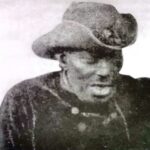HAYMAN, RUTH
- 2 Min Read
Ruth Hayman (February 12, 1913-October 7, 1981), social reformer and lawyer, was distinguished for her energy and courage in acting for defendants in innumerable political trials in South Africa.

PHOTO CAPTION: Ruth Hayman. SOURCE: image.squarespace.
Born in Johannesburg, as a young solicitor who had qualified at the University of the Witwatersrand, she founded the Legal Aid Bureau to provide legal advice for the poor of the city. In 1952, she defended women arrested in the Defiance Campaign.
By 1965, she was almost singlehandedly acting as attorney in hundreds of political cases, not only in the Transvaal but in the Eastern Cape. It was typical of her great courage that she took on the defense of John Harris, the white liberal who placed a bomb in Johannesburg railway station as a protest against apartheid.
Meanwhile, she had been one of the founders of the multi-racial Liberal Party in 1953 and was also active in the Black Sash, a white women’s protest movement. In 1966, the government placed her under house arrest and imposed numerous bans which effectively destroyed her legal practice. She and her husband, Mervyn Lazar, and their children emigrated to London.
There she soon turned her gifts and energy in the direction of social and community work and founded Neighbourhood English Classes for immigrants, most of them Pakistani and Bengali but also including Cypriots, Vietnamese, and Africans. She was also involved in community relations work in Britain and proved an effective organiser and fund raiser. Though very ill, only two weeks before her death she was ready with a new project, training women of ethnic minorities to teach family planning.
Alan Paton said of her: “Ruth Hayman hated injustice and would fight against it with all the strength of her slight body.” The restrictions placed on her by the South African government testified to her achievements and tenacity in defending victims of the apartheid system.
MARY BENSON




